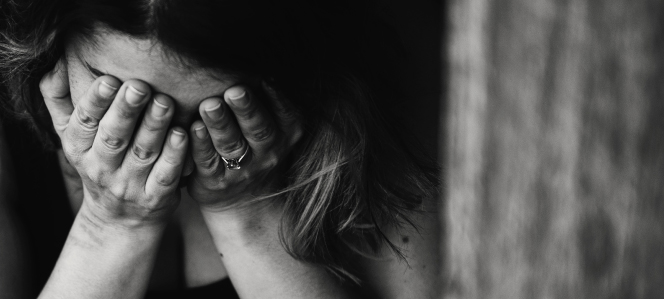I lost my Mom almost a year ago and have spent a lot of time grieving, thinking about grief, and now, reflecting on healing. I am convinced that death and loss were never intended for the human person to experience. It pulls you into your core and pierces your heart in such away that it almost forces authenticity and confrontation with your inner life.
Men and women grieve differently. In their essential nature, masculinity is spontaneity or a giving; femininity is receiving. The posture of the heart is structured around these same natures.
Since death is adverse to humanity, it would be a natural response for our own hearts to operate in opposition to themselves. Men would no longer give. Women would no longer receive. But, instead, both would do the exact opposite.
By this, I mean that men (in dealing with grief) would turn in and their grieving would be internalized instead of “given.” Women, in the same instance, would no longer receive but would “give” of their grief. For example, at the moment of my mother’s passing, we all wept openly—the men and the women by her bedside. But thereafter, the grieving was different. The men didn’t speak of it often or with depth. Meanwhile the women would grieve by a pouring out. The men were no longer “giving.” The women were no longer “receiving.”
There are, of course, exceptions to this. Men and women do not always grieve in this way. And the “giving” and “receiving” is only in respect to the grief, not in the overall being or act. Exceptions occur when the person is “inward” or aware of their inner life and interiority.
As I shared this thought with friends, one friend brought up the instance of grieving at the foot of the cross. Most of the men were absent, cutting off their gift of self, but the women remained, pouring out.
The point of healing occurs when the man has finally had enough internalization and instead finally “gives.” Maybe in a torrent of tears or an outburst of grief! He returns to spontaneity or giving. The woman finally gains her strength and composes her tears. She returns to receiving. They are able to be gifts to the other again. In other words, when faced with death which is contrary to humanity and life in God, for a moment, our nature and inner life is reversed in grieving, and when that nature returns to its ordered state, healing begins.
Again, there are exceptions to grieving in each of these ways. Periods of grief vary and healing varies. Grief is to be explored and much of it is beyond intellect. Thank God for grace!
From another approach, grief also raises the mundane into the sacred. The great loss of someone or something will elevate those things or memories into the divine. A simple dirt road will always remind you of them. Their favorite shirt or the last song you listened to together…maybe the voicemails that you listen to after they are gone…no longer ordinary but somehow now so very special. We are confronted with the reality that nothing is ever really simple or mundane. Our sight had only grown dull or maybe even hazy. Grief has a way of making our hearts so tender that every moment then becomes essential, every moment full of meaning. We can finally see.
And I believe there’s a temptation with grief to see it as weakness. Given the anthropology explained here, in the face of great loss, grieving is an essential part of the actualization of man, of humanity. It also provides an opportunity to take the simple and make it extraordinary. So, let us weep. Let us grieve. Let us heal. Grieving is strength.
